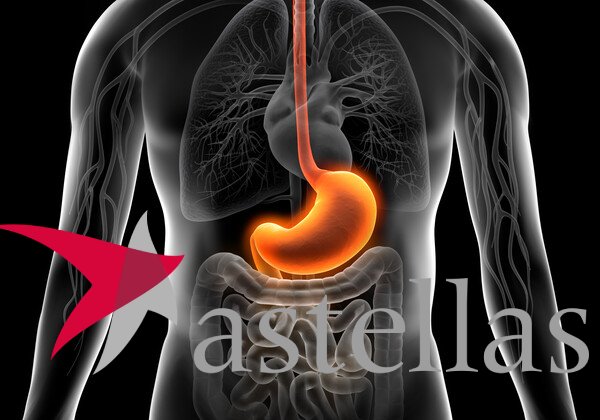Astellas' Vyloy (zolbetuximab), the first targeted therapy developed to treat Claudin 18.2-positive gastric cancer, has failed its first reimbursement challenge.
However, improvements in the immunohistochemistry (IHC)- based companion diagnosis system have partially resolved concerns about diagnostic gaps involving Vyloy.

At its first meeting this year on Wednesday, the Cancer Disease Review Committee (CDRC) under the Health Insurance Review and Assessment Service (HIRA) decided “not to set a reimbursement standard” for Vyloy.
Vyloy is the world's first and only Claudin 18.2-targeted therapy. It won approval from the Ministry of Food and Drug Safety (MFDS) last September for “combination therapy with fluoropyrimidine-based and platinum-based chemotherapy as first-line treatment for patients with CLDN18.2-positive, HER2-negative, locally advanced or metastatic unresectable gastric adenocarcinoma or gastroesophageal junction adenocarcinoma.
Astellas Korea submitted a reimbursement application for Vyloy to HIRA last October, shortly after the approval, and launched the drug without reimbursement this year.
However, there was an unexpected twist even before Vyloy was introduced to clinical practice in Korea.
To use Vyloy, it is necessary to differentiate Claudin 18.2-positive patients. Concerns were raised that the companion diagnostic device (CDx) used for this diagnosis, the VENTANA CLDN18(43-14A) RxDx Assay, could take up to 15 months to review before receiving reimbursement.
IHC, which has been used in clinical practice for decades, has been subject to a new medical technology evaluation by the National Evidence-based Healthcare Coordinating Agency (NECA) for each new biomarker added to the test, which can take up to 15 months to be approved by the HIRA. Therefore, if Vyloy's diagnostic test is also subject to NECA evaluation, its clinical introduction could be delayed for up to a year.
In response, the relevant medical societies -- the Korean Society of Pathologists and the Korean Cancer Association -- submitted an opinion to HIRA that IHC is the existing technology” and that the assessment of Vyloy's diagnostic test as a new medical technology is unreasonable, winning recognition at two meetings of the Expert Evaluation Committee.
Therefore, IHC-based companion diagnostic tests will now be categorically recognized as “existing technology” regardless of biomarkers, setting the first precedent that they do not need to undergo NECA’s new medical technology evaluation.
However, HIRA notified that the companion diagnostic test would be calculated as the “companion diagnostic auxiliary fee (Level 1)” until Vyloy is reimbursed, citing that there is no precedent for companion diagnostic tests to be reimbursed before the therapeutic drug is reimbursed. It added the explanation that the companion diagnostic tests would be automatically converted to “Level 2” if Vyloy is reimbursed.
However, related academic societies criticized it as a “half-baked” improvement. They pointed out that it essentially conflicts with the purpose of the government's introduction of the companion diagnostic fee system in the first place.
In addition, if the “Level 1” fee is applied to the Vyloy diagnostic test, pathology departments will receive about 20,000 won ($13.8) less for the same test, which is not enough to cover the cost, and hospitals will have no incentive to introduce diagnostic reagents.
Currently, patients with advanced or metastatic gastric cancer must be tested for HER2 positivity, PD-L1 expression, and Claudin 18.2 positivity at the time of diagnosis to determine a first-line treatment strategy.
However, the recent systemic improvement is criticized for shifting the burden of Claudin18.2 diagnosis to hospitals, impeding patient access to treatment until Vyloy is reimbursed.
Without reimbursement, pathology departments and healthcare organizations will likely be reluctant to use the reagent if the diagnostic cost is not fully covered, leading to patients not getting the right treatment.
Therefore, the medical community will likely continue to call on the government to ensure adequate reimbursement of diagnostics even while the reimbursement of Vyloy is delayed.
Related articles
- Keytruda gets expanded coverage for 11 indications at cancer disease panel
- Patient group urges faster access to Vyloy by reforming diagnostic rules
- Will revised gastric cancer clinical guidelines address Vyloy’s diagnostic gap?
- Vyloy launch in Korea nears but reimbursement hurdles restrict patient access
- Vyloy pioneers new era in metastatic gastric cancer treatment with Claudin 18.2 targeting
- Astellas Korea names ex-Novartis exec Kang as head of medical affairs
- 'Vyloy took targeted treatment for stomach cancer to higher level’
- Astellas Korea renews bid to reimburse targeted gastric cancer drug Vyloy

